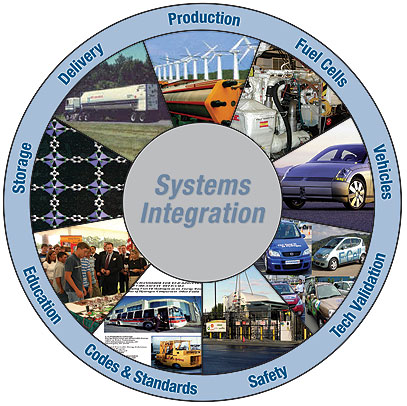Systems Integration
The technological advancements and lessons learned through research, development, and demonstration of hydrogen and fuel cell technologies must be integrated to work as a fully functional system. This is the focus of systems integration—understanding the complex interactions between components, systems costs, environmental impacts, societal impacts, and system trade-offs. Identifying and analyzing these interactions will enable evaluation of alternative concepts and pathways, and result in well-integrated and optimized hydrogen and fuel cell systems.
Led by the Office of Energy Efficiency and Renewable Energy, this activity supports the DOE Hydrogen Program through the following tasks and efforts:
- Developing an integrated baseline, linking all the technical and programmatic aspects of the program
- Providing independent systems analysis in support of program decision-making
- Implementing configuration management/change control and risk management processes
- Providing a framework for systematic and comprehensive review of R&D projects
- Commissioning independent peer review panels for critical program milestones/decisions

